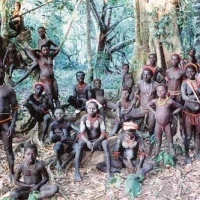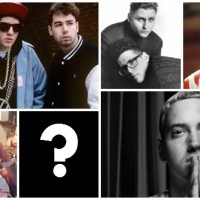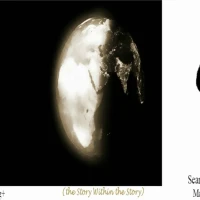∞∞∞
THE RECORDING OF HISTORY
SEGMENT ONE
written & edited by Kendall F. Person
History’s Ghost
I have driven across the United States of America – my country – eight times; from Blaine Washington to Providence Rhode Island. From Key West Florida to San Ysidro California. From Austin Texas to St. Paul Minnesota and all points in between. And while I experienced a flurry of emotions as I drove through or spent time in 42 of the 50 states and the District of Columbia, including wonder and fatigue, but only once did my travels, along the open road, invoke ghosts and pondering of history; and that was while driving through the bayous of Louisiana on a pitch perfect day.
“Run, Joshua, run!” I could hear my mother scream. “And when they catch you, run away again.” I was born into slavery, a free man I had never been and would never be. I had no idea where I was running to, or what life awaited me once I was there, but my mother had passed down stories told to her, about what it meant to be free. It was the history of my family that kept me running away, determined to find this freedom and deliver my people to it, for in servitude and bondage was no way for a man to be. It was the history of our bloodline that kept us strong. The knowledge, that we were descendants of a tribe of people, a community, gave my family hope and strength and dreams, and no matter how hard they tried to beat it or brainwash it out of us, the recording of history in our minds, was something that could not be stripped away.
A Fight for History
The late 1980’s and early 1990’s was a boom and bust time for young African American males. College enrollment was on the rise, positive, progressive shows (The Cosby Show, A Different World) topped the Nielsen ratings. Black directors led by Spike Lee, were making their Hollywood mark and the hip hop industry was not only proving itself to be a force in the recording arts industry, but learning from the past, many young black entertainers held onto control of their own destinies. But the crack epidemic and gang violence threatened to derail positive self-images, and while many theories existed as to how the destructive drug had arrived in the inner city, and with lingering dust of racial inequalities still a part of the fabric of our nation, ultimately, it was a problem that had to be solved by the community itself.
On October 16, 1995, more than a million African American men, young and old, rich and poor, educated and dropouts, clergy and convicts would converge on the nation’s capitol in a powerful yet humble display of togetherness, of uncertainty, of trying to find the answers to who we were and where we stood in the only country we have ever called home. There was no blame on that day. No angry shouts about the oppressor, no fists raised defiantly in the air, only direction and love and sharing of wisdom, and the message that it was time we stood up for ourselves in creating communities in which we would be proud to raise our families. It was a very reflective moment, not just for the black community, but for the nation as a whole. But what should have evolved into a continual discussion on what we learned and what needed to be done, was sabotaged, not necessarily on purpose, nor by any one group or person in particular, although we have no real way of knowing, but the damage had been done, nonetheless.
The National Park Service, the official historian of the day, would record the number of 400,000 in attendance, far below the 2 million estimated by the Nation of Islam, setting off a firestorm of controversy, and becoming the main topic, forever recording history as a battle of numbers.
History Lesson
How will history be recorded about the present day clashes between the police and private citizens and the deaths of so many unarmed, young black men? Will the course begin with Trayvon Martin and end (we hope) with Keith Childress*, discussed in university lecture halls, concerning the state of the nation? And will this give rise to think tanks being created to alleviate the poisons, that must still persist in the minds of many about our fellow citizens? Or will each individual death and resulting protest, trial or riot be listed as a single occurrence, each life lost and community torn apart, forgotten with no lessons taught and nothing learned?
When the above photo of my Grandfather sitting next to a man that changed the nation was discovered, it was a historic day for my generation of siblings and cousins, as it served to enhance the knowing that we belonged to a proud bloodline, that was a part of the solution, therefore, we knew, a leader must be inside of us too, although the decision was ours to make.
It was the recording of history, through secret languages, family bonds, and whispering talks when the slave owners were not around, that helped support entire generations of a people in bondage, an institution that lasted for well over 200 years, delivering the fortitude needed to never give up and the reckless dignity required to race for daylight every chance they got, even with the knowing, savage beatings and death awaited upon being caught.
If the numbers by the Nation of Islam or even the more conservative figures touted by Boston University’s Center of Remote Censoring had held, the Million Man March would have been recorded as the largest march or demonstration in the history of our nation’s capitol, giving it a historical significance that could not have been ignored by historians when writing their books and by the governing boards of education, when determining what and how history should be taught.
History’s Future
If the continued dialogue had been one of self-love, responsibility, community and brotherly love, rather than the forgettable controversy of numbers, would that have changed how some still view African American males or how some of us still view ourselves – through a less than favorable, judgmental lens? Could it have continued to increase the enrollment in colleges, and would it have led to the vibrancy of many inner city communities, and would it have said to later generations, that Black life matters, making it more difficult to pull the trigger, and would tragedies like Baltimore and Ferguson, and Trayvon never happened, and with so many pressing problems that affect us, like drought and climate change and food shortage, two decades after the Million Man March, would the racial divide have finally, no longer been our problem?
If history had been recorded a different way, how could it have not.
an editorial of thepublicblogger
The Law of the Land: The Recording of History Segment Two
a recorder of history: The Illstorian
*Final Tally, The Washington Post











Pingback: LAW OF THE LAND – The Neighborhood
Pingback: THE RIGHTEOUS JUXTAPOSITION OF THE PUSILLANIMOUS KIND – The Neighborhood
Pingback: BALTIMORE’S 72 HOUR CEASEFIRE IS A HAIL MARY – BUT WHAT IF IT WORKS. – The Neighborhood
Pingback: Why a Civil War, The Voting Rights Act and the Presidential Defeat of a Carnival Barker Did Not End America’s Race Dance | The Neighborhood
Reblogged this on joliesattic and commented:
Beautifully and eloquently stated and apropos for the time!!
LikeLike
Yes yes yes!!! This is THE post!!!
LikeLiked by 2 people
This may sound odd, but I had the same reaction after the final edit (huge smile). So good to know you enjoyed the show and so nice to have you in The Neighborhood.
LikeLiked by 1 person
Pingback: My Article Read (2-7-2016) – My Daily Musing
Pingback: The Recording of History – Social Stigmas
Pingback: Law of the Land: The Recording of History continues | The Neighborhood
Reblogged this on Art by Rob Goldstein and commented:
A thought provoking post from Kendall F. Person
LikeLiked by 1 person
This is a provocative and thought provoking post. You raise some complex questions and the answers are difficult…questions of conscience and social evolution, and history are obscured by the twin veils of individual and collective denial.
That photo of your Grandfather with Martin Luther King is wonderful!
LikeLiked by 2 people
When the Million Man March celebrated its 20 year Anniversary, a FB reader, who I did not know at the time, comments struck me hard “Now what? Whatever became of the march?” As someone who was there, I thought about the calamity of events that reduced it to a side show and yet it was truly or should have been a revolutionary event. I also remember a co-worker at the time saying “It was a great event, why does it matter how many people were there?” My reply. “Because history matters.” Thank you, RG – as always – for your addition to the story.
LikeLiked by 2 people
I didn’t have a chance to see the comments on Facebook.
..I remember the march and I remember thinking that it was long overdue, but by the time the March took place deregulation had already undermined the media’s job giveing us the facts which included
why the March was happening.
This was when the politically correct right wing echo chamber was finding its ‘voice’.
I recall that the march was presented in the news as a kind of nostalgia for the 60’s — and the fact that it was organized by Farrakhan was played up after he had been sufficiently demonized.
What I think we need is an actual poor people’s march…a billion people March…one that takes place in every major city of the globe.
LikeLiked by 1 person